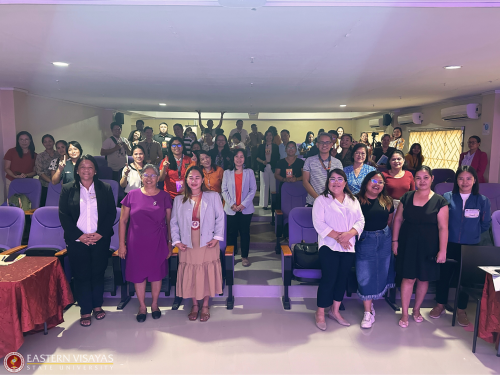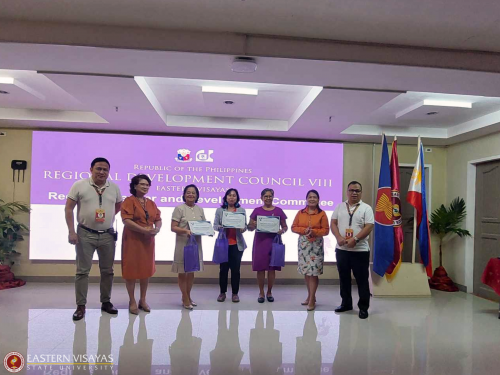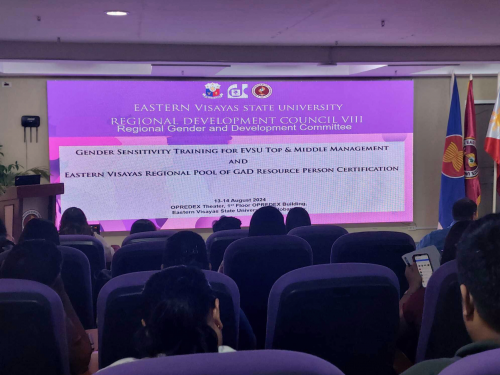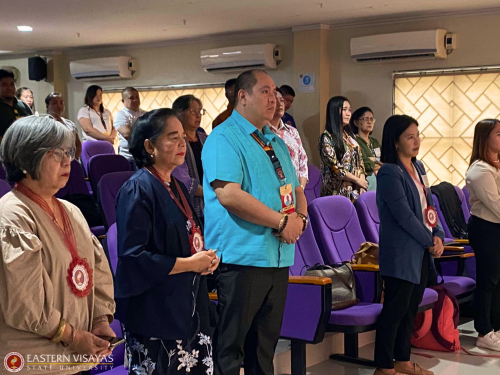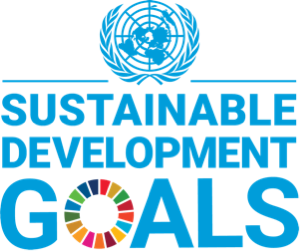Tracking pay scale for gender equity
Eastern Visayas State University (EVSU) upholds the principles of fairness, inclusivity, and equal opportunity as integral components of its human resource management framework. In pursuit of gender equity across all employment levels, the University actively monitors and evaluates its pay scale structure to ensure that compensation is based solely on merit, qualification, and responsibility—free from any form of gender bias or discrimination.
The Human Resource Management Office (HRMO), in coordination with the Gender and Development (GAD) Office, conducts periodic assessments of salary grades, plantilla positions, and contract-based appointments. This mechanism enables the University to detect and address potential disparities between male and female employees occupying similar ranks or performing equivalent functions. Data on gender distribution and corresponding pay levels are tracked and analyzed annually to guide equitable policy decisions and workforce planning.
Furthermore, EVSU aligns its compensation monitoring practices with national standards prescribed by the Department of Budget and Management (DBM), the Civil Service Commission (CSC), and the Commission on Higher Education (CHED), ensuring compliance with the Magna Carta of Women (Republic Act No. 9710) and the Equal Pay for Equal Work principle enshrined in the Labor Code of the Philippines.
These efforts reflect EVSU’s unwavering commitment to gender-responsive governance, where transparency and accountability in pay practices reinforce a culture of fairness and respect for diversity. By institutionalizing the tracking of pay scale data through a gender lens, EVSU ensures that every personnel—regardless of gender identity—is accorded equal value, recognition, and opportunity in the University workforce.
Strengthening Gender Analysis for Pay Scale Equity through GAD Capacity Building
Eastern Visayas State University (EVSU), through its Gender and Development (GAD) Office led by Director Dr. Fatima Socorro M. Quianzon, continues to strengthen institutional capacity for gender equity and inclusive governance. In collaboration with GAD experts from various government agencies and state universities, EVSU hosted a two-day Gender Sensitivity Training aimed at deepening awareness and competency in gender analysis, a crucial foundation for tracking pay scale and employment equity across the University.
Held on August 13–14, 2024, at the ORDEXs Studio Room, the activity brought together a pool of certified GAD resource persons to orient participants on gender-responsive tools and methodologies. Key sessions focused on Gender Analysis and its Common Tools, the Harmonized Gender and Development Guidelines (HGDG), the Gender Mainstreaming Evaluation Framework (GMEF), and the Gender Responsive LGU (GeRL) Assessment Tool—frameworks that provide measurable ways to identify and address disparities between women and men in institutions.
Speakers from partner agencies such as DOST, PCW, and various State Universities emphasized that gender analysis is not only about awareness but also about developing systems that quantify and correct inequities, including those in compensation, representation, and opportunities. EVSU’s participation in this training reinforces its commitment to institutionalizing data-driven monitoring of pay scales and employment practices through a gender lens.
By integrating these analytical tools into its human resource management systems, EVSU aims to regularly assess pay parity, ensure equitable compensation across genders, and uphold the principle of “equal pay for work of equal value.” This initiative complements the University’s compliance with the Magna Carta of Women (RA 9710) and the national mandate for Gender and Development Planning and Budgeting (GPB), allocating at least 5% of its annual budget to programs promoting gender equality and inclusivity.
Through this strengthened collaboration and continuous capacity building, EVSU is laying the groundwork for a sustainable mechanism to track, evaluate, and report gender equity in pay scales and career progression, ensuring that fairness and inclusivity remain at the core of its institutional development.




